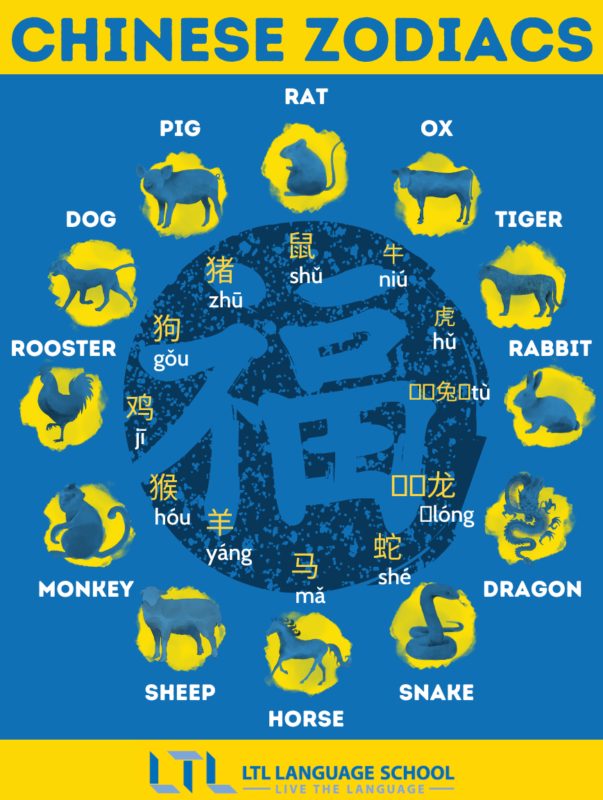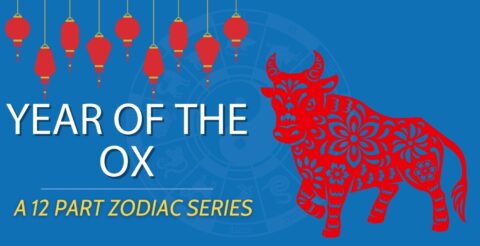Chinese Zodiacs || Year of the Rat (A Complete Guide)
The Year of the Rat 🐀 Everything You Need to Know || Luck, Culture and Compatibility

In this 12-part blog post series, we’re taking you on a tour of the different Chinese zodiac animals.
From what they represent, to how they influence modern Chinese culture and language, we’ll tell you everything you need to know.
Today, we’re kicking things off by looking at:
The Year of the Rat (鼠年 shǔ nián).
We’ll explore the story, the cultural perception and the influence of the first year in the lunar calendar cycle.
Years of the rat include:
1936 | 1948 | 1960 | 1972 | 1984 | 1996 | 2008 | 2020 | 2032
Year of the Rat || Origin Story
Year of the Rat || Rats in Chinese Culture
Year of the Rat || Rat Zodiac Characteristics
Year of the Rat || Year of the Rat Celebrities
Year of the Rat || Lucky and Unlucky Symbols
Year of the Rat || Work, Relationships and Family
Year of the Rat || Chinese Medicine
Year of the Rat || Rats and Tourism
Year of the Rat || Language Impact: Names and Idioms
Year of the Rat || Global Influence
Year of the Rat || FAQs
The Year of the Rat || Origin Story
The Chinese zodiac is said to have originated during the Zhou Dynasty (1046-256 BC), when the Jade Emperor (玉皇 yù huáng), the mythical ruler of heaven, was searching for a way to more easily keep track of the years.
He thought it would be a good idea to name them after the animals of the world.But he wanted to do it fairly.
The Jade Emperor summoned the animals to take part in what soon became known as the Great Race (十二生肖的竞赛” shí’èr shēngxiào de jìngsài).
The rules of the race stated that the first 12 animals to cross the line would be awarded a position in the Chinese zodiac. To level the playing field and account for the different strengths of each animal, he designed the course to cover various terrain.
So, the animals set off from the Heavenly Peach Orchard and climbed a mountain before descending to face the final hurdle: a vast, gushing river that they had to cross to reach the finish line.

From where the Emperor sat on the river bank, it appeared that the Ox 牛 (niú) would claim first place.
He was about to congratulate the animal on its victory when the rat bounced off the Ox’s head and raced across the finish line to win.
As it turned out, the rat had used its intelligence and cunning to persuade the Ox to give it a lift across the river, knowing it stood little chance of crossing the river safely otherwise.

Chinese Zodiacs || Year of the Tiger (A Complete Guide)
The Year of the Tiger 🐯 Everything You Need to Know || Luck, Culture and Compatibility In this 12-part blog post series, we’re taking you on a tour of the Chinese zodiac animals. From what they represent to how they…
The Year of the Rat || Meaning in Chinese Culture
👉 As the first animal of the Chinese zodiac cycle, the rat symbolizes fresh beginnings in Chinese culture. The Year of the Rat is considered the perfect time to pursue new opportunities and start over.
It’s also a symbol of wealth, abundance and fertility, thanks to the animal’s ability to reproduce at an exceptionally fast rate. Because of this, many Chinese couples pray to the rat to increase their chances of conceiving.
But how can such a dirty animal have such a positive reputation?
Although the zodiac sign is generally seen in a favourable light, much like in other cultures, the rat is still known for sneaky and dangerous behaviour like stealing food and spreading disease.
And as you’ll see later in the article, this negative perception is what shapes the meaning behind the word “老鼠”.
Year of the Rat || Characteristics of People Born in the Year of the Rat
As the rat’s route to victory in the Great Race suggests, those born in the Year of the Rat are said to be intelligent, quick-witted, versatile, energetic and resourceful.

As a result, they tend to be very successful in life and work.
Rats are also considered likeable, empathetic people who work hard and get on well with others (although the Ox might disagree!)
But like all the other zodiac signs, rats have a dark side too.
They’re also known for being quite stubborn and greedy, and if they don’t get their way, there’s a high chance they’ll hold a grudge against you.
Do any of these traits sound familiar?
Find out your Chinese zodiac sign using our zodiac calculator.
Year of the Rat || Celebrity Rats

If you’re a rat, you might also want to brag about some famous faces who share your zodiac year!
Here’s some of the most notable celebrity rats:
- William Shakespeare: 1564
- Hugh Grant: 1960
- Mark Zuckerberg: 1984
- George Washington: 1732
- Eminem: 1972
Year of the Rat || Lucky and Unlucky Symbols
Chinese zodiac signs don’t just influence personality, they also determine our luck.
The Year of the Rat is thought to be the luckiest zodiac sign of them all.
That doesn’t mean you can sit back and wait for good fortune to fall on your lap, though. If you’re hoping to maximise your luck, you’ll want to pay attention to these auspicious signs.
Lucky Symbols for the Year of the Rat
🐁 Lucky days: the 4th and 13th of any month of the Chinese Lunar Calendar.
🐁 Lucky months: the 2nd, 5th, and 9th Chinese lunar months.
🐁 Lucky numbers: 2 and 3 and any combination of numbers containing them
🐁 Lucky colours: blue, gold, green
🐁 Lucky flowers: lily, African violet, orchid
🐁 Lucky directions: west, northwest and southwest
DID YOU KNOW – Your luck can also be influenced by zodiac years that aren’t your own. For example, the Year of Dragon and the Year of the Ox are lucky years for rats, during which you stand a good chance of succeeding in your studies or your career.
Unlucky Symbols for the Year of the Rat
The Year of the Rat might be lucky, but like the other Zodiac signs, it also has unlucky symbols you’ll want to be aware of.
🐁 Unlucky numbers: 5 and 9 (and any combination)
🐁 Unlucky colours: yellow, brown
🐁 Unlucky directions: south and southeast
🐁 Unlucky months: the 4th, 10th, and 12th Chinese lunar months
👉 As someone born in the Year of the Rat, you can increase your chances of having a lucky year by avoiding your unlucky colours and numbers and paying close attention to your auspicious signs during your unlucky months.

Chinese Superstitions // How Many Do You Know?
Chiense Superstitions can seem down right crazy to some of us. We cover the number 4, your year of birth, turtles and facial hair. Something for everyone!
Year of the Rat || Work, Relationships and Family
Although it dates back centuries, the Chinese zodiac is still widely respected in modern China, and its influence can be felt in everything from personal relationships to work.
Here’s how the Year of the Rat impacts Chinese society.
Rat Zodiac at Work
One place the Chinese Zodiac plays a strong role is in the workplace.
Although not officially condoned, many employers hold biases against applicants with certain zodiac signs, which influence whether or not they choose to hire them.
The good news for rats is that, as one of the luckier signs, they tend to be viewed positively.
Their outgoing personalities and adaptability mean they find it easy to get along with and earn the trust of different people. However, their shy side means they don’t usually fare well as leaders.
Their relationship may have gotten off to a rocky start, but the rat is actually most compatible with the ox, both at work and in everyday life. So, if you’re working with an ox, expect to become good friends very quickly.
Rat Zodiac in Relationships
Zodiac signs also influence romantic relationships, and many young Chinese people still consider them an important symbol of compatibility.
It’s common to be asked:
你属什么? Nǐ shǔ shénme? What’s your zodiac sign?
This question often pops up on a first date – if you even get that far, that is.
Some Chinese dating apps use algorithms to match people based on the compatibility of their 生肖 (shēngxiào). So, you may not even get as far as meeting someone the stars deem unsuitable for you!
Zodiac signs are also a common feature on the list of personal attributes displayed at Chinese marriage markets. Parents on the hunt for a son or daughter-in-law will consider astrology when deciding whether or not to set the eligible bachelor/bachelorette up with their child.
So, if you were born in the Year of the Rat, you’ll most likely be matched with a fellow rat, an ox, a dragon or a monkey.
Equally, according to Chinese astrologers, you’ll be best off avoiding rabbits, horses and roosters, who you’ll find hard to tolerate.
Year of the Rat || Chinese Medicine

Traditional Chinese Medicine is another area that’s been heavily influenced by the zodiac.
Each zodiac sign is associated with a specific element – Wood, Fire, Earth, Metal, or Water.
These elements are thought to shape an individual’s personality and health tendencies, which TCM practitioners will consider when assessing a patient.
The Year of the Rat is linked to the element of Water, which means that people born in this year are seen as adaptable and resourceful but also prone to stress.
As a result, traditional Chinese medicine may recommend that rats focus on stress management techniques, improving their diet and taking herbal remedies deemed suitable for their unique characteristics.
See just how pervasive the zodiac is!?

Chinese Food Therapy 食疗 shí liáo // A Beginner’s Guide
What is Chinese Food Therapy? There are many things to love about living in China, and one of them is of course, the food (see below)! There seem to be an unlimited amount of food options in China. Shanghai alone…
Year of the Rat || Rats and Tourism
Relationships, work and medicine aren’t the only areas influenced by the Chinese Zodiac. Some travel companies also take astrology into account when offering holiday destination recommendations.
People born in the Year of the Rat might want to consider locations that match your need for an energetic trip packed with various activities, such as the sprawling city of Chongqing.
Known for its spicy food, stunning scenery and rough-around-the-edges culture, it’s ideal for people who can adapt to and thrive in unfamiliar surroundings.
Year of the Rat || The Rat in Chinese Language and Names
As we mentioned earlier in the article, the rat is somewhat negatively portrayed in the Chinese language, most notably through Chinese idioms, known as 成语 (chéngyǔ).
Rat-related Idioms
First up is a pretty prime example rats having a negative connotation in the Chinese language:
过街老鼠,人人喊打
guò jiē lǎo shǔ, rén rén hǎn dǎ
Meaning: everyone detests a lowlife.
This idiom literally translates to “a rat crosses the street, everyone chases it down.”
It conveys the idea that when someone is universally despised or detested – like a criminal, for example – everyone is quick to condemn or criticise them, much like how people would react if they saw a rat crossing the street.

Next up, we have another not-so-flattering use of rats in Chinese, this time in a four character Chengyu:
鼠目寸光
shǔ mù cùn guāng
Meaning: rat’s vision
This idiom is used to describe someone who has a narrow or short-sighted perspective.
If you’d like to practice using these Chengyu with native speaker teachers, make sure to check out our online Chinese Flexi Classes
As for our next Chengyu, we’re not going to get your hopes up, it’s also used to describe poor behavior!
如鼠盗鸡
rú shǔ dào jī
Meaning: like a rat stealing chickens
This idiom is used to describe sneaky or dishonest behavior, such as when someone is trying to steal from or take advantage of others.
鼠肚鸡肠
shǔ dù jī cháng
Meaning: “rat’s belly and chicken intestines”
This Chengyu is used to describe someone who is petty, narrow-minded, or easily offended – another one you probably don’t want to use too lightly!
Last but not least, we have a Chengyu that whilst still isn’t positive, at least isn’t quite as insulting as the others!

胆小如鼠
dǎn xiǎo rú shǔ
Meaning: as timid as a rat
While the rat is seen as intelligent, cunning and resourceful, it’s far from brave.
So, in Chinese, the word ‘rat’ is often used as a substitute for ‘coward’.
This forms the basis of this idiom, which is used in a derogatory way towards people lacking courage.
Naming Year of the Rat Children
It’s not uncommon for parents around the world to choose a baby name based on its meaning. The same is true in China, only here parents may also choose their children’s names based on their zodiac sign’s auspicious characters.
Because zodiac rats are associated with the water element, it’s considered lucky to choose names that include radicals associated with water (氵), metal (金) or rice (米), for example:
| Chinese character | Pronunciation | Character meaning |
|---|---|---|
| 永 | yǒng | Forever |
| 泉 | quán | Spring (as in a water spring) |
| 清 | qīng | Clear or pure |
| 利 | lì | Benefit or advantage |
| 莉 | lì | Lily |
| 鵬 | péng | Roc (a mythical bird) |
| 雀 | què | Sparrow |
| 雁 | yàn | Wild Goose |
Do you have a Chinese name already? If not, we’ve got you covered. Fill in our Chinese Name Generator, and we’ll carefully select one for you!
Chinese Dishes Named After the Rat
While many Chinese dishes are named after the time or place they were created, others are named after the zodiac animals.

Given that rats aren’t the most hygienic, they haven’t inspired many chefs to name their creations after them…
That said, you will find some dishes or ingredients containing the character 鼠.
Don’t worry – that doesn’t mean they contain rats. They’re coined after the animal’s appearance, so they’re perfectly safe to try.
If you want a comprehensive guide to dishes that contain strange animal parts, check out this article. Otherwise, here are two dishes named after this zodiac animal:
Rat Noodles 老鼠粉 (lǎoshǔ fěn)
This is a popular rice noodle dish from Guangxi Province.

It’s named after the noodles’ appearance, which resemble the long, thin tail of a rat.
Although the name might not be the most appealing, the dish is really tasty, with a spicy broth topped with meat (not rat), vegetables, and peanuts.
You’ll also find these noodles in Singapore and Malaysia, where they’re also known as ‘mouse tail noodles’.
Rat-Tail Radish 老鼠尾萝卜 (lǎoshǔ wěi luóbó)
Rat-tail radish is a long, slim radish sometimes used in Chinese cuisine as an ingredient in soups, stews, and pickled dishes. The name is derived from the radish’s apparent likeness to a rat’s tail.

10 Must Try Shanghainese Foods 🍜 Your Complete Guide
Chinese food is so diverse that it’s really difficult to say what’s best, so we’ve diluted it down. Here are the top 10 best Shanghainese food dishes.
Year of the Rat || Global Influence
China isn’t the only country where the zodiac animals play an important role in culture, relationships, work and medicine.
Many other Asian countries, such as Japan, Vietnam and Thailand, base their lunar calendar on the signs.
Psst… If you want to learn about these other cultures, check out our Japanese blogs and Vietnamese blogs!
As you’ll see over this series of articles, some cultures have their own interpretations of the different zodiac signs.
For the most part, most Asian cultures consider people born in the Year of the Rat to possess similar traits to those we’ve looked at here.
However, these countries aren’t the only ones to view rats in a relatively positive light. Hindu culture considers them to be worthy of worship thanks to a legend that rats are the incarnations of a revered deity’s children.
A temple in northern India even houses thousands of live rats, drawing pilgrims from far and wide who wish to worship them.
If that makes you as squeamish as it makes us, don’t worry. You won’t find rats hanging around temples in China. They mostly appear as cartoons or drawings on Chinese New Year merchandise. Phew.
The Year of the Rat || FAQs
When is the next year of the rat?
The Chinese zodiac calendar is 12 years long, which means the next Year of the Rat will be 2032.
Previous years included 1948, 1960, 1972, 1984, 1996, 2008, and 2020.
What is my Chinese zodiac sign?
You can use our Zodiac calculator to find out!
What signs is the rat not compatible with?
People born in the Year of the Rat are not romantically compatible with the Horse and the Rooster, and they’re said to be at risk of divorce if they try!
Why is the year of the rat lucky?
As the first year of the Chinese Zodiac cycle, the rat represents new beginnings in Chinese culture.
This makes it an especially auspicious year.
What’s more, the rat is thought to symbolise wisdom, wealth and prosperity.
What are people born in the Year of the Rat like?
People born in the Year of the Rat are said to be intelligent, quick-witted, versatile, energetic and resourceful.
They are also considered likeable, empathetic people who work hard and get on well with others.
However, they’re also thought to be quite stubborn, greedy and likely to hold a grudge.
What comes after the year of the rat?
Following the Year of the Rat is the Year of the Ox, who came in second place after being unexpectedly beaten by the rat in the Great Race.
Want more from LTL?
If you wish to hear more from LTL Language School why not join our mailing list.
We give plenty of handy information on learning Chinese, useful apps to learn the language and everything going on at our LTL schools.
Sign up below and become part of our ever growing community.
FANCY LEARNING CHINESE ONLINE? Why not sign up to a 7 day free trial of our Flexi Classes.
![[𝗢𝗟𝗗] LTL Shanghai Logo](https://old.ltl-shanghai.com/wp-content/sites/3/logo-ltl-header.png)



